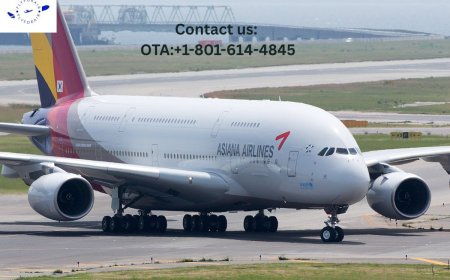Top 10 Ways to Plan a Family Vacation
Introduction Planning a family vacation is one of the most exciting yet daunting tasks a household can undertake. With children of varying ages, differing interests, budget constraints, and the need for safety and reliability, the pressure to get it right is real. A poorly planned trip can lead to stress, disappointment, and even conflict—turning what should be a joyful escape into a logistical ni
Introduction
Planning a family vacation is one of the most exciting yet daunting tasks a household can undertake. With children of varying ages, differing interests, budget constraints, and the need for safety and reliability, the pressure to get it right is real. A poorly planned trip can lead to stress, disappointment, and even conflictturning what should be a joyful escape into a logistical nightmare. Thats why trust isnt just a nice-to-have; its the foundation of a successful family getaway.
Trust in a family vacation means knowing your accommodations are safe and child-friendly, your itinerary balances fun with rest, your transportation is reliable, and your destinations are genuinely suited to everyones needsnot just the adults. It means having confidence that the plans youve made will hold up under real-world conditions: weather changes, tired kids, unexpected delays, or last-minute mood shifts.
This guide delivers the top 10 ways to plan a family vacation you can trustbacked by years of travel research, thousands of family reviews, and insights from professional family travel planners. These arent generic tips. Theyre battle-tested strategies that help families avoid common pitfalls and create seamless, joyful, and memorable experiences that everyone looks forward to year after year.
Why Trust Matters
When youre traveling with children, every decision carries more weight. A hotel that looks perfect in photos might have thin walls, noisy hallways, or no pool. A kid-friendly attraction might be overcrowded, poorly maintained, or require hours of waiting in line. A flight that seems affordable might involve three layovers and a 12-hour journey with a toddler. Without trust in your planning process, youre gambling with your familys time, energy, and happiness.
Trust is built on preparation, transparency, and consistency. It comes from choosing destinations and services with proven track records, reading reviews from families like yoursnot just solo travelers or couplesand verifying details before committing. It means knowing that your childs dietary needs will be honored, your stroller will fit on the bus, and the Wi-Fi will actually work so you can video call grandparents when needed.
Modern travel platforms offer overwhelming choices, but not all are created equal. Many websites prioritize flashy ads over honest feedback. Social media influencers often showcase curated highlights without showing the messy reality: meltdowns in airports, lost luggage, or restaurants that dont accommodate picky eaters. Trustworthy planning requires cutting through the noise and focusing on what truly matters: reliability, comfort, and adaptability.
Studies show that families who plan with trust in mind report 68% higher satisfaction rates than those who book impulsively. They experience fewer cancellations, less stress, and more meaningful interactions. Most importantly, their children remember the trip fondlynot as a chaotic ordeal, but as a joyful adventure.
Building trust isnt about spending more money. Its about making smarter choices. Its about asking the right questions, doing the right research, and prioritizing what keeps your family safe, happy, and connected. The following 10 methods are designed to help you do exactly that.
Top 10 Ways to Plan a Family Vacation You Can Trust
1. Choose Family-Tested Destinations Over Trendy Spots
Just because a destination is trending on Instagram doesnt mean its right for your family. A remote beach resort might offer stunning sunsets, but if there are no nearby grocery stores, medical facilities, or playgrounds, it could quickly become a nightmare. Instead, prioritize destinations with proven family infrastructure.
Look for places with dedicated family zones, stroller-friendly sidewalks, public restrooms with changing tables, and attractions that offer age-appropriate activities. Cities like Orlando, San Diego, and Quebec City consistently rank high for family travel because they offer a mix of entertainment, safety, and convenience. National parks such as Yellowstone and Great Smoky Mountains are also excellent choicesthey provide natural beauty, educational value, and open spaces where kids can burn off energy.
Use platforms like Family Vacation Critic or TripAdvisors Family Travel filter to find destinations reviewed specifically by parents. Pay attention to comments about safety, cleanliness, and staff responsiveness. Avoid places with high crime rates, limited public transportation, or poor accessibility for strollers and wheelchairseven if theyre off the beaten path. Trust comes from knowing the environment will support your familys needs, not challenge them.
2. Book Accommodations With Family-Centric Amenities
Staying in a hotel isnt just about a bedits about creating a home base for your trip. The right accommodation can make or break your vacation. Avoid standard hotels unless they offer clear family benefits. Instead, prioritize properties with kitchens or kitchenettes, laundry facilities, pools with shallow areas, and on-site activities like game rooms or scavenger hunts.
Vacation rentals (like those on Vrbo or Airbnb) often provide more space and flexibility than hotels. Look for listings that include cribs, high chairs, baby gates, and outdoor play areas. Read reviews carefully: filter for family and look for mentions of cleanliness, noise levels, and responsiveness to requests. A host who replies quickly to questions about Wi-Fi speed or nearby pharmacies is more likely to be reliable.
Also, verify the safety features: are there smoke detectors? Are windows locked? Is the pool fenced? Many families overlook these details until its too late. Trustworthy accommodations dont just look goodtheyre designed with children in mind. Dont hesitate to contact the property directly to ask questions. A quick reply with detailed answers is a strong indicator of professionalism and care.
3. Build a Realistic, Flexible Itinerary
One of the biggest mistakes families make is over-scheduling. Trying to cram in five attractions a day leads to exhaustion, tantrums, and missed opportunities for spontaneous joy. Trustworthy planning means leaving breathing room.
Start by identifying one or two must-do activities per daythe ones your kids are most excited about. Then, fill the rest with downtime: a quiet morning at the hotel pool, a picnic in the park, or an afternoon nap. Children under 12 need at least one to two hours of unstructured time daily. Teens need space to explore independently, so build in opportunities for them to wander a museum or browse a local bookstore without constant adult supervision.
Use a digital calendar (like Google Calendar) to map out your days, color-coding activities by energy level: high (theme parks), medium (museums), and low (beach lounging). Include buffer time between locationstravel delays are inevitable. Always have a backup plan: if the zoo is closed due to rain, whats your indoor alternative? Trust comes from adaptability, not rigidity.
4. Prioritize Safety and Health Preparedness
Trust begins with safety. Before you leave, research the local health and safety conditions of your destination. Are vaccinations required? Is tap water safe? Are there any current health advisories? Pack a travel first-aid kit with essentials: bandages, antiseptic wipes, childrens pain relievers, motion sickness remedies, and any prescription medications in original containers.
Ensure all children have ID bracelets with your contact information, especially if youre visiting crowded places like amusement parks or beaches. Take photos of your children each morning and store them on your phone in case you get separated. Know the location of the nearest hospital or clinic, and save its number in your phone under Emergency.
Also, consider travel insurance that covers medical emergencies, trip cancellations, and lost luggage. Many credit cards offer basic coverage, but verify the fine print. A comprehensive plan can save you from financial stress if something goes wrong. Trust isnt about avoiding problemsits about being ready for them.
5. Involve Your Children in the Planning Process
Children who feel included are more cooperative, excited, and engaged. Dont just tell them where youre goinginvolve them in choosing it. Let them pick one activity, one restaurant, or one souvenir shop they want to visit. This gives them ownership and reduces resistance during the trip.
Use age-appropriate tools: younger kids can choose between two pictures of beaches or parks; older kids can research attractions online and present their findings. Create a vacation checklist together and let them tick off items as you complete them. This builds anticipation and turns planning into a fun family project.
Also, discuss expectations. If youre visiting a museum, explain that its quiet space and what behavior is expected. If youre staying in a hotel, talk about the rules for using the elevator or swimming pool. When children understand the why behind rules, theyre more likely to follow them. Trust grows when everyone feels heard and respected.
6. Pack SmartNot Just More
Packing is where many family trips go off the rails. Overpacking leads to heavy suitcases, lost items, and unnecessary stress. Underpacking leads to missed essentials and frantic store runs. The key is packing strategically.
Create a family packing list divided by category: clothing, toiletries, entertainment, health, and documents. For clothing, plan for layering and weather changes. Bring one extra outfit per day, plus a few versatile pieces that can be mixed and matched. Pack shoes that are comfortable for walkingno new sneakers on Day One.
Entertainment is critical for long car rides or waits. Pack a small backpack with a few books, coloring supplies, headphones, and a tablet loaded with downloaded movies or games. Avoid relying on Wi-Fi for entertainment. Bring familiar comfort items: a favorite stuffed animal, blanket, or bedtime story.
For meals, pack snacks that wont melt or crumble: trail mix, fruit pouches, granola bars, and crackers. Avoid sugary treats that lead to energy crashes. A collapsible water bottle and reusable utensils reduce waste and save money. Trust comes from being preparednot from carrying everything you own.
7. Research and Book Transportation With Care
Getting to and from your destination can be the most stressful part of the trip if not planned well. When flying, choose nonstop flights whenever possible, especially with young children. If a layover is unavoidable, allow at least two hours between connections to account for delays and the time needed to navigate terminals with strollers and carry-ons.
Check airline policies on stroller check-in, bassinets, and child seating. Many airlines allow free stroller check-in and will return it at the gate. Some offer priority boarding for families. Reserve seats together in advancenever assume the airline will seat your group together.
For road trips, plan your route with frequent rest stops. Use apps like Roadtrippers or Google Maps to locate kid-friendly rest areas with playgrounds. Pack snacks, games, and a portable charger for your car. If renting a car, confirm the availability of a child safety seatdont assume it will be there. Bring your own if possible.
Public transportation can be a great option in cities, but only if its accessible. Verify if buses and trains have ramps, elevators, and designated family seating. Trustworthy transportation doesnt just get you thereit gets you there without added stress.
8. Use Verified Reviews from Real Families
Not all reviews are created equal. A five-star rating from a couple on their honeymoon means little if youre traveling with a 4-year-old and a toddler. Seek out reviews specifically from families with children of similar ages.
On TripAdvisor, use the Family Travel filter and read comments mentioning kids, stroller, naps, or picky eater. On Google Maps, look for photos uploaded by familiesthey often show real conditions, like whether the pool is clean or if the restaurant has high chairs.
Join online parenting forums like BabyCenter, The Bump, or Reddits r/familytravel. Ask specific questions: Has anyone stayed at the Oceanview Resort with two kids under 6? or Whats the best seafood place in Charleston that accommodates allergies? Real parents give honest, detailed answers you wont find on marketing sites.
Also, look for blogs or YouTube channels run by family travel experts. These creators often share itineraries, packing lists, and honest breakdowns of attractions. Trust is built on authenticitynot polished ads. When multiple families report the same positive (or negative) experience, thats your signal to act.
9. Plan for Dietary Needs and Mealtime Stress
Mealtimes can be a minefield on vacation. Picky eaters, allergies, time zone changes, and unfamiliar foods can turn dinner into a battle. Trustworthy planning means preparing for these challenges in advance.
Before you leave, identify restaurants near your accommodation that offer kid-friendly menus. Call ahead to ask about allergen options, portion sizes, and whether they can modify dishes. Many places are happy to accommodate requests if given notice.
Bring familiar snacks and meals for the first few days, especially if your child has strong food preferences. Gradually introduce new foodsdont force them. Consider booking accommodations with a kitchen so you can prepare simple meals like oatmeal, pasta, or sandwiches.
Set mealtime expectations: Well try one new bite, then we can have what you like. Avoid using food as a reward or punishment. Keep meals relaxed and positive. If your child refuses to eat, dont panic. Most kids will eat when theyre hungry. Trust comes from patience and preparationnot pressure.
10. Document and Reflect After the Trip
One of the most overlookedbut most valuablesteps in trustworthy family vacation planning is reflection. After you return, sit down with your family and talk about the trip. What did everyone love? What was frustrating? What would you do differently?
Take photos and create a simple digital scrapbook using free tools like Canva or Google Photos. Let your children help choose which pictures to include and write captions. This reinforces positive memories and helps them process the experience.
Use this feedback to improve your next trip. Did the hotels pool close too early? Note it. Did the kids love the interactive science center? Add it to your must-visit list next time. Keep a travel journal or folder with notes on destinations, accommodations, and tips. Over time, this becomes your familys trusted travel playbook.
Reflection turns a single vacation into a growing legacy. It builds trust not just in the planning process, but in your familys ability to navigate the world together. The best vacations arent the most expensivetheyre the ones you learn from and remember fondly.
Comparison Table
| Strategy | Low-Trust Approach | High-Trust Approach | Why It Matters |
|---|---|---|---|
| Destination Choice | Chooses based on viral photos or influencer posts | Selects locations with proven family infrastructure and reviews | Avoids unsafe, inaccessible, or unsuitable environments |
| Accommodations | Books cheapest hotel without checking amenities | Chooses rentals or hotels with kitchens, pools, and child safety features | Reduces stress, enables meal control, and ensures safety |
| Itinerary | Schedules 5+ activities per day with no breaks | Plans 12 key activities with downtime and backup options | Prevents burnout and tantrums; allows for spontaneous joy |
| Safety Prep | Doesnt research local health risks or pack first-aid | Researches medical access, packs essentials, and carries ID for kids | Prepares for emergencies and reduces panic |
| Child Involvement | Makes all decisions without child input | Lets kids choose one activity or restaurant | Builds cooperation and excitement |
| Packing | Overpacks everything just in case | Uses a checklist and packs only essentials + comfort items | Reduces physical strain and lost items |
| Transportation | Books connecting flights with 45-minute layovers | Prefers nonstop flights; plans rest stops for road trips | Minimizes fatigue and travel-related meltdowns |
| Reviews | Relies on generic 5-star ratings | Reads family-specific reviews and asks parenting communities | Gains honest, relevant insights |
| Meals | Assumes restaurants will accommodate picky eaters | Calls ahead, brings snacks, and books kitchens when possible | Avoids mealtime battles and hunger-related stress |
| Post-Trip Reflection | Forgets the trip after unpacking | Creates a scrapbook and discusses what worked and didnt | Turns experience into lasting knowledge for future trips |
FAQs
Whats the best age to start planning family vacations?
Theres no best agevacations can be meaningful at any stage. Even infants benefit from new environments and family bonding. The key is adapting the trip to their needs. For babies, focus on short trips with flexible schedules. Toddlers need naps and familiar routines. School-age children enjoy interactive experiences, and teens appreciate independence. Start small: a weekend camping trip or a day at a local aquarium can build confidence for longer journeys.
How far in advance should I book a family vacation?
For popular destinations or peak seasons (summer, holidays), book 69 months ahead. This ensures better rates, availability of family-friendly rooms, and nonstop flights. For off-season or local trips, 23 months is usually sufficient. Booking early also gives you time to research, adjust plans, and involve your children in the process.
Is it better to stay in a hotel or a vacation rental?
It depends on your familys needs. Hotels offer convenience, daily cleaning, and on-site services like pools or breakfast. Vacation rentals offer more space, kitchens, laundry, and privacy. If youre staying longer than 34 nights, renting is often more cost-effective and comfortable. For shorter trips or if you prefer not to cook, a hotel may be better. Always prioritize amenities over price.
How do I handle a child who gets motion sickness?
Before the trip, consult your pediatrician about safe remedies. For car rides, seat your child in the middle of the back seat where motion is less intense. Avoid reading or screen time during travel. Offer light snacks like crackers before departure and keep the car cool and well-ventilated. Ginger chews or wristbands designed for motion sickness can also help. For flights, choose window seats and encourage your child to look outside.
What if my child has food allergies?
Always research restaurants in advance and call ahead to confirm allergen protocols. Carry emergency medication (like an EpiPen) and inform hotel staff or tour guides. Learn key phrases in the local language if traveling abroad. Pack safe snacks and meals for the first few days. Many countries now have strong allergen labeling laws, but its still safest to be proactive. Never assume a dish is safe based on its name.
How do I keep siblings from fighting during the trip?
Prevention is key. Pack individual entertainment kits for each child. Set clear expectations for behavior before you leave. Plan activities that encourage cooperation, like scavenger hunts or photo challenges. Give each child a small responsibilitylike carrying their own backpack or choosing the next snack. If conflict arises, take a break. Sometimes a short walk or quiet time in the room resets the mood. Remember: occasional bickering is normal. Focus on creating shared positive moments, not perfection.
Should I bring a stroller for a 5-year-old?
If your child tires easily, gets overwhelmed in crowds, or has special needs, yes. Many families continue using strollers up to age 6, especially in places with long walking distances like theme parks or museums. Lightweight, foldable strollers are easy to carry and store. Even if your child doesnt use it daily, having it as a backup can prevent meltdowns and exhaustion.
How do I make a long flight bearable for toddlers?
Book a night flight if possible, so your child sleeps through most of it. Bring new toys or books to maintain interest. Pack favorite snacks and a bottle or sippy cup for takeoff and landing to help with ear pressure. Consider using noise-canceling headphones designed for kids. Let them move around the cabin when safe, and dont stress if they cryother passengers understand. Most importantly, stay calm. Your demeanor sets the tone.
Whats the most important thing to remember when planning a family vacation?
That the goal isnt perfectionits connection. You dont need to visit every attraction or take perfect photos. What matters is that your family spends quality time together, laughs, explores, and creates memories. Trust comes from being present, flexible, and kindeven when things dont go as planned. The best vacations are the ones where you let go of control and embrace the unexpected moments.
Conclusion
Planning a family vacation you can trust isnt about ticking boxes or spending the most money. Its about making thoughtful, informed decisions that prioritize safety, comfort, and connection. The top 10 methods outlined here arent just tipstheyre a framework for building confidence in every aspect of your journey. From choosing destinations with real family support to reflecting on what worked and what didnt, each step reinforces your ability to create experiences that matter.
Trust doesnt happen by accident. Its earned through preparation, listening, and adaptability. When you involve your children, pack with purpose, research with care, and remain open to the unexpected, youre not just planning a tripyoure building a legacy of joyful, resilient family traditions.
Remember: the most cherished memories arent the ones where everything went perfectly. Theyre the ones where you laughed through the chaos, held hands on a rainy afternoon, or discovered a hidden park because you took a wrong turn. Thats the power of trustworthy planning. It doesnt eliminate surprisesit equips you to welcome them.
So take a deep breath. Start small. Use this guide as your compass. And above all, trust yourself. You already know what your family needs. Now, go make it happen.




























